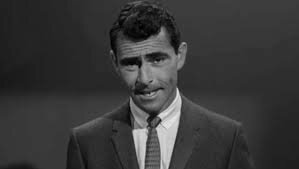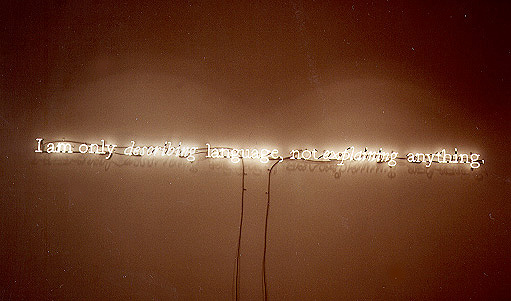I had written in a post reponding to
@ufology: "Randall, we're not 'on the same page' and can't be until you invest the time required to read and comprehend phenomenological philosophy.” He replied:
Like I keep trying to get across, it's not that I don't comprehend, it's that, as should be obvious to you as well, there is no one correct way of looking at phenomenology, and that's because there are differing approaches by different philosophers who have their own spin or perspective on it. Add to that, there are multiple interpretations by individual students as to what each of those means.
The phenomenological school of philosophy is coherent from its outset to the present, though, as is the case in any philosophical discipline, individual philosophers have specific perspectives to bring to it – not surprising given the complexity of issues phenomenology addresses. You, nor anyone else, can comprehend phenomenological philosophy in whole or in part without reading it. To say as you do above that you ‘comprehend’ phenomenology without reading it is quite ludicrous. Prove me wrong, if you can, by writing us a lengthy post in which you characterize the philosophical problems and issues phenomenology addresses and what it contributes to philosophy of mind, consciousness studies, neuroscience, biology, ethology, evolutionary theory, and other disciplines involved together in the current vigorous inquiry into what consciousness is.
So the point in my asking, is to know exactly, without ambiguity, what you think you are saying, not what other people are saying. Once I know that, then we can build from there.
The point in your asking is to demand that I present you with a statement or a paragraph which you will attempt to discredit or dismiss with a statement or a paragraph, as is your usual practice in these forums. Ultimately what you want is rhetorical debate rather than cooperative effort to understand all the perspectives being brought to the complex problem consciousness presents to philosophy and science. The only thing we -- not just you and I but all of us together in this thread -- can mutually ‘build’ is mutual comprehension of the complex nature of consciousness, which requires comprehension of all the disciplinary perspectives brought to it in our time.
So please, some specifics. Instead of focusing on what you think my intellectual capacity for comprehension is, or other issues that will get us sidetracked, can you please just answer the question I asked in your own words: By "open-ended, lived, phenomenal interface", what exactly are you referring to there?
Sure, I’ll say again what I have said hundreds of times before in this thread with the wild hope that this time you will understand it. The phrase I wrote that puzzles you, referring to the “open-ended, lived, phenomenal interface” of conscious beings with the environing world in which they find themselves existing, refers to the ways in which we
experience the world in which we live
phenomenally – through the always situated, always temporally changing, and always partial phenomenal appearances of things and others available to us as we begin to walk around in this world, equipped with the affordances nature has provided us to see things to the extent that we do [never in-themselves], to hear the sounds that penetrate our ears, to feel the significance of touching and being touched by things and others actually present in the natural and cultural mileau in which we live, and gradually becoming capable of reflection on and thinking about our own experiences, our commonly shared experiences with others of our species and of other species, and the resulting funding of meaning, meaningfulness, in 'lived reality'. I hope that satisfies your demand. If not, so be it. (Btw, I have not cast aspersions on your "intellectual capacity for comprehension" but rather observed that you cannot engage effectively in discussions here because they are based on the reading of many lengthy texts, which you refuse to read.)
I also wrote: “Regarding the genesis of consciousness, however, Hoffman dives right in, claiming an ontological truth beyond demonstration that consciousness pre-exists the physical world itself and the evolution of beings capable of consciousness within it,” to which you replied:
If that made any sense I might buy into it, but from my perspective, which is that existence itself is physical in nature, it doesn't.
Then Hoffman’s interface theory should make no sense to you either. But if that’s the case why do you appear to be defending it? It looks as if you will need to spend some time reading what Hoffman has written, and also reading the critical respondents who have found what he has written to make no sense.
I also asked: “What are you talking about with regard to "our inner perceptual world"? And on what basis is all that we perceive and reflect on in the world "a step away from the question of consciousness itself"? And you replied:
“I use the phrase "perceptual world" as a reference, literally, to things perceived (the process of using the senses to acquire information about the surrounding environment or situation - Encarta ), not the thing that is experiencing the perceptions.”
So for you the “perceptual world” is constituted by things perceived through the senses, but somehow does not involve the perceiver’s experiential consciousness of the things that are perceived? Then who or what, in your view, does the perceiving? What is “the thing experiencing the perceptions” you go on to invoke in your next sentence?
Consciousness is from my perspective, the thing experiencing the perceptions, which makes the perceptual world one step away from consciousness itself. So for example, An AI might have a collection of electronic bits gathered from various sensory input devices that constitutes "information about the surrounding environment or situation", and it could even result in tasks being performed that are related to that information, but we don't have sufficient reason based on the task being performed, to assume that there is any consciousness behind it. I hope that helps clarify.
I’m afraid it doesn’t. What is the functional role or purpose of consciousness, in your view, if it does not open us up to sensorial and other bodily experiences of the mileau in which we have our existence?


